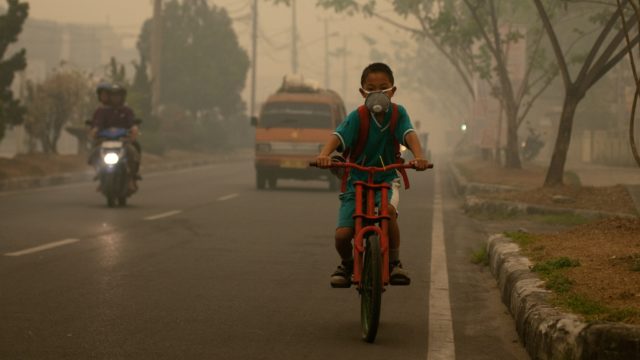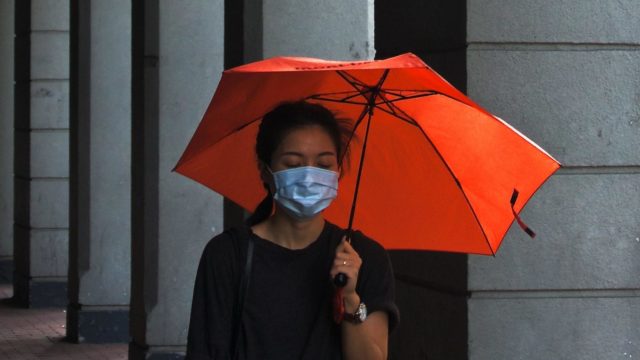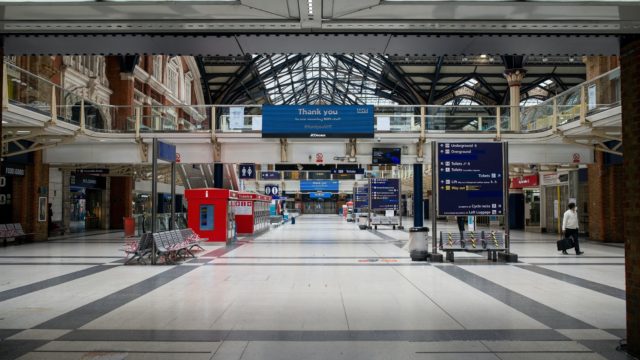Mental health and green recovery
COVID-19 isn't just a physical health crisis - and we need a recovery that addresses our mental health and wellbeing too.

Last month I attended a meeting of medical professionals, epidemiologists, NHS leaders, and UK civil servants on health and green recovery. We were there to discuss the health benefits of a green and fair economic recovery from the COVID crisis, and whether the UK government’s 10-point green economy plan does enough to protect and promote public health.
We heard about the health benefits of public transport, reduced particulate emissions, and restored and protected natural spaces, with the precision that one expects from medical people and civil servants. I only made one intervention and it was too vague for this company. It was vague because I was grappling for something bigger, something undefined in the meeting.
Clarity came a few hours later. I was grappling to articulate a sense that this crisis is not just about physical health; it’s not just about the toll that decades of toxic pollution have taken on our hearts and lungs, tragic as that is. It’s also a collective mental health crisis – an epidemic of stress, anxiety, and occasional despair.
A decade of doom-scrolling
In the UK we have had a decade of austerity following the financial crisis, 5 years of uncivil war over Brexit, and now over a year of lockdown. We’ve had to grapple with death, isolation, recession, unemployment, and ballooning debt. And this whole time, climate scientists, biologists and David Attenborough have been reminding us in ever starker terms of looming environmental catastrophe - causing a growth in climate anxiety.
Other countries have their own specific national troubles in place of the UK’s Brexit. The United States has seen bloodshed in its very seat of government; many European states are grappling with resurgent far-right nationalism; Latin America has been rocked by a year of protest and state violence – all of which contribute to a near-universal mental health crisis. This crisis, I propose, is the consequence of a breakdown of trust, of confidence and of hope.
Confronting the crisis
Is the UK government’s 10-point green economy plan commensurate to tackling this crisis? Is it real global leadership – or just an opportunistic, back of a fag packet piece of national PR? Will it usher in a genuinely new approach to economic policymaking which puts social and environmental health on a par with profit, or will it fade away as the vaccine releases us back to business as usual?
Unfortunately, the evidence so far hints towards the business as usual conclusion. The UK comes low on our new green recovery tracker launched this week by the Green Economy Coalition, with green initiatives dwarfed by the USD$27 billion pledged for road building alone, as well as unconditional bailouts for aviation and car industries.
“ A true green recovery from COVID is not just about economic recovery – it is a recovery of our collective health, both physical and mental.”
Indeed, the world comes low. Overall, of the $14.6 trillion so far spent on COVID response around the world, only $341bn can be classed as green recovery. Now, to be fair, the jury is still out. As we know, the phases of COVID response are stabilise, stimulus, structural, so most of the money spent by governments so far is on stabilisation phase, but even with that we see the usual suspects doing better and doing worse. The current green recovery leaders are Germany, Finland, Norway, Denmark and France, while the laggards include Australia and the UK.
A collective recovery from trauma
And so my main point is that green recovery is not just about economic recovery – it is a recovery of our collective health. Our physical health, protected from pandemics and pollution, but also our mental wellbeing, buttressed by trust in government, and in hope and confidence for our future. There is more at stake than even a lost generation. So we must make sure that we don’t let the green recovery opportunity pass.
We must rebuild the social contract by showing that government is about securing all our futures, not just those that can afford to take politicians for dinner. We need to level up regions and the world in order that the world is fairer and safer. We should not be satisfied with vague green job targets – instead, we need to help create green careers particularly for our youth; purposeful, secure, well paid jobs that improve life prospects, that encourage us all to do our bit in behaviour change, because we know we all have a stake in our collective success.

And with all that as context, the GEC announces its green recovery work and sends out an invitation to collaborate. We shall tell the story of recovery, its leaders and laggards. We shall define what best-in-class green recovery policy looks like, ensuring that it commits to the all-important structural reforms necessary for a successful transition. We’ve updated our Green Economy Tracker with new assessments of national COVID responses, and we are doubling the number of countries the Tracker covers. We shall support national, social and business conversations in as many countries as we can – as it is in each country that the recovery decisions will be made.
We shall prioritise this work above all else for the next 18 months, because if we fail to secure an authentic, commensurate green recovery, we risk failing altogether. But if we succeed, then we can start to feel hope and even happiness for the future.
Please, join us.
- Oliver Greenfield, Convenor


